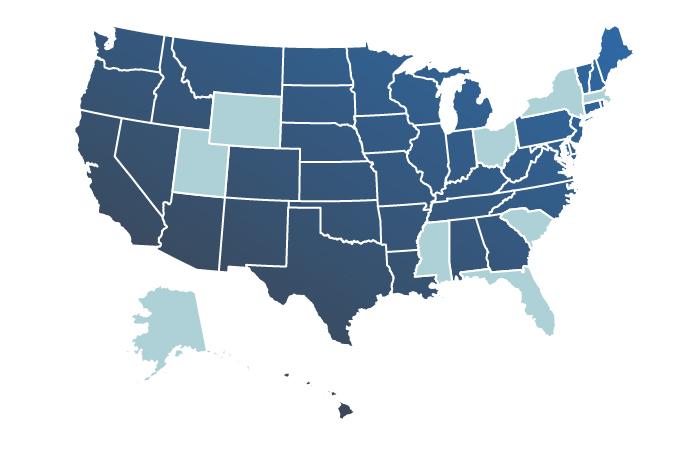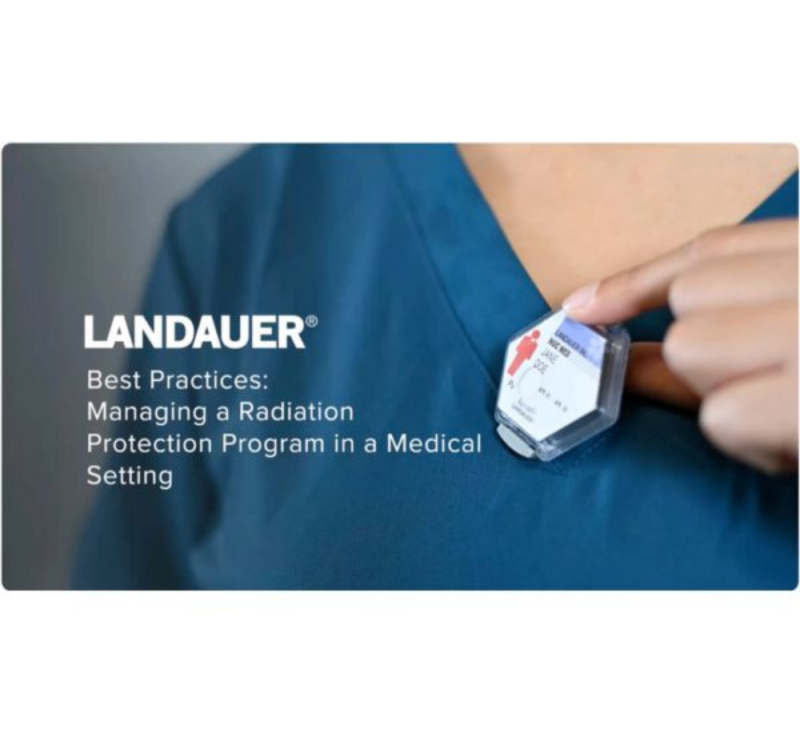Nearly all 50 states require a written Radiation Protection Program. Do you have one, and is it compliant?
A radiation protection program (RPP) is designed to ensure that all activities and operations involving ionizing radiation are conducted safely and in compliance with applicable regulations, helping you protect users, staff, patients, and the public from unnecessary radiation exposure. Stay in compliance with state and federal regulations and avoid potential inspection challenges with your customized radiation protection program developed by LANDAUER Medical Physics. This radiation protection service helps you create an optimized RPP with input and guidance from top-tier radiation consultants in the industry.
Our consultants will offer recommendations needed to comply with applicable state regulations and accreditation standards. Partnering with LANDAUER means collaborating with industry experts who have years of experience developing and implementing radiation protection programs.
Radiation Protection Plan Elements
Your customized radiation protection program will address policies and procedures to help your facility maintain compliance in all areas of radiation safety. Elements of the program typically cover eight common subjects:
Personnel Dosimetry
Personnel dosimetry is a key aspect of an RPP. The plan needs to determine who is required to wear a dosimeter, the type of dosimeters required for the exposure, the monitoring period, and other necessary processes crucial for a compliant dosimetry program. In addition, it will address the essential component of your ALARA program to include the trigger I and II levels, monitoring periods, and required action when these levels are exceeded. LANDAUER is well-versed in all aspects of dosimetry services and is well-known for reliable, accurate dosimeters.
Shielding Design
The physical placement of equipment that emits radiation is an important aspect of a radiation protection plan. We perform more than 2,000 radiation shielding designs every year, and our experts have put together shielding designs for medical and dental practices across all 50 states. LANDAUER medical physicists have experience working in all practice types and modalities such as radiography, fluoroscopy, nuclear medicine, and others.
Required Supplies
While dosimeters are a priority with RPPs, there are other crucial components that need to be evaluated. This includes the requirement for personal protective equipment (PPE), such as lead aprons, thyroid shields, and lead glasses.  Our consultants can help you determine what is needed for your program.
Equipment Installation and Registration
When purchasing and installing radiation-generating equipment, there are state regulations and accreditation standards that must be adhered to. Managing these requirements can be complex, which is why our radiation protection program service will help you determine what steps are required to ensure compliance with your equipment.
Policy for Pregnant Workers
RPPs also need to consider how to safely protect declared pregnant employees. These plans are required to have a fetal dose policy to ensure declared pregnant workers do not surpass fetal radiation regulatory limits. This policy should include additional steps for radiation exposure protection such as how to access fetal dosimeters.
Radiation Safety Education
An important step in a radiation protection plan is to develop a thorough radiation safety education plan. Compliance with state regulations and accreditation standards requires Radiation Safety Training for certain personnel upon hire and annually thereafter. This is an important part of your radiation protection program. Additionally, your state may also require that certain staff maintain continuing education credits which are available through LANDAUER Academy.
Equipment Testing and Maintenance
When developing an RPP, equipment testing and maintenance is a necessary requirement. These plans need a dedicated timeline to consistently check and test radiation-emitting equipment to stay in compliance with all applicable rules and requirements.
State-specific Laws
Compliance is a key part of a robust radiation protection plan. With different rules and regulations across the country, ensuring you comply with state-specific laws is not always easy. Our experts have experience with managing national, state, and local regulations.
Custom Approach to Creating RPPs
With different rules and regulations across agencies, as well as different types of facilities using radiation-emitting equipment, no one radiation protection program is the same. That means there’s no simple template for creating a successful RPP. Our team of experts has spent years doing this work across the nation, making our consulting service one-of-a-kind. We take a customized approach to every program, using our industry-renowned experience to create optimal radiation protection programs made specifically for each individual organization served.
Radiation Protection Program Benefits
Written radiation protection programs are required in nearly every single state in the U.S. for sites that have an X-ray machine or any type of radioactive material. Ensuring your practice has a concrete RPP will lead to a host of benefits including:
- Reduction in radiation exposure for employees and patients
- Increased knowledge about radiation safety and exposure
- Improved reputation for safety
- Compliance with both federal and local laws and state regulations
- Stronger legal protection in case of lawsuits


